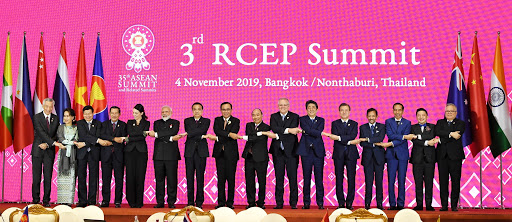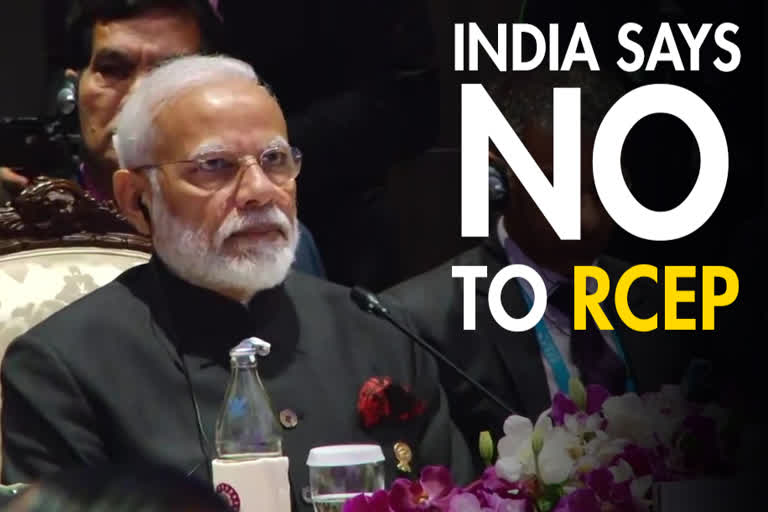New Delhi: Staunch anti-RCEP advocate Swadeshi Jagran Manch (SJM) has thanked Prime Minister Narendra Modi for taking the bold decision of not entering the agreement on Regional Comprehensive Economic Partnership (RCEP). The RSS-affiliated organisation wants the government to review the 'faulty' Free Trade Agreements (FTAs) and CEPA did with Japan, South Korea, and other countries now. In a congratulatory statement issued in Delhi, Ashwini Mahajan, national co-convenor, SJM, applauded the efforts of commerce minister Piyush Goyal of convincing the ASEAN countries to review FTA with them.

SJM believes that the RCEP would have undone various good works done by the NDA government under PM Modi in the last six months. The agreement would have killed the Make In India, Digital India, Skill India and various other avenues of job creation. After coming out of the RCEP negotiations; we request the government to review the faulty Free Trade Agreements (FTAs) and CEPA has done with Japan, South Korea, and other countries. SJM, earlier, applauded the efforts of Piyush Goyal led Commerce & Industries Ministry of convincing the ASEAN countries to review FTA with them.
Also Read: My conscience is not allowing to join RCEP, says Modi
SJM, from the beginning, requested the government to stay away from this pact, and always alerted the ills coming in the way. India already has a trade deficit of more than $105 billion with the other member nations negotiating the agreement, out of which $54 billion is with China alone, RCEP would have impacted the economy very badly. The agreement had no provisions for the bridging the trade deficit. In fact, the zero tariffs on most of the products would have allowed the Chinese companies to dump further in our country. This would have wiped out the small and micro players.
SJM again thanks the PM Modi for safeguarding the interests of farmers and dairy. The RCEP could have paved the way for dumps coming in from Australia and New Zealand. This would have not only killed the opportunities for doubling the farmers’ income but would have wiped out several job opportunities.
No RCEP allows the data sovereignty and space for making laws governing our data, and its further local residence for the servers computing inferences out of these data. It is time to rebuild the capacity, capability and the eco-system to push the domestic and indigenous players, help them grow bigger and make them competent and competitive enough to go global.
What is RCEP?
What began in 2012 as a routine harmonizing of agreements between members of the Association of Southeast Asian Nations, or Asean, turned into a deal creating potentially the world’s biggest free-trade bloc. The Regional Comprehensive Economic Partnership, to give its full name, is aimed at strengthening trading ties among China and others with Asean members. Broadly speaking, it would lower tariffs and other barriers to the trade of goods among the 16 countries that were in or had existing trade deals with, ASEAN.



